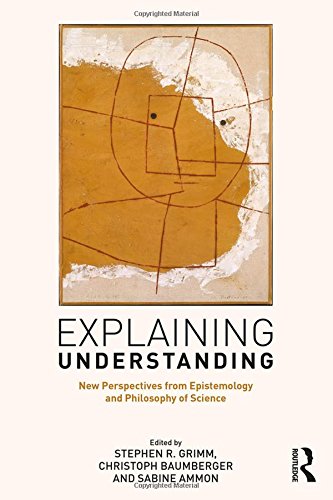

Most ebook files are in PDF format, so you can easily read them using various software such as Foxit Reader or directly on the Google Chrome browser.
Some ebook files are released by publishers in other formats such as .awz, .mobi, .epub, .fb2, etc. You may need to install specific software to read these formats on mobile/PC, such as Calibre.
Please read the tutorial at this link: https://ebookbell.com/faq
We offer FREE conversion to the popular formats you request; however, this may take some time. Therefore, right after payment, please email us, and we will try to provide the service as quickly as possible.
For some exceptional file formats or broken links (if any), please refrain from opening any disputes. Instead, email us first, and we will try to assist within a maximum of 6 hours.
EbookBell Team

4.0
66 reviewsWhat does it mean to understand something? What types of understanding can be distinguished? Is understanding always provided by explanations? And how is it related to knowledge? Such questions have attracted considerable interest in epistemology recently. These discussions, however, have not yet engaged insights about explanations and theories developed in philosophy of science. Conversely, philosophers of science have debated the nature of explanations and theories, while dismissing understanding as a psychological by-product.
In this book, epistemologists and philosophers of science together address basic questions about the nature of understanding, providing a new overview of the field. False theories, cognitive bias, transparency, coherency, and other important issues are discussed. Its 15 original chapters are essential reading for researchers and graduate students interested in the current debates about understanding.